Depression is a serious but treatable mental health condition that affects millions of people worldwide. It can rob you of joy, energy, and motivation, making it difficult to carry out your daily responsibilities or maintain healthy relationships. Fortunately, depression often responds well to a combination of therapies, medications, and lifestyle changes. For those with treatment-resistant depression, additional options are available to provide hope and healing.
Effective Therapies for Depression
Therapy is one of the most effective tools for treating depression, helping you understand your thoughts, emotions, and behaviors while developing healthier coping strategies.
- Cognitive behavioral therapy focuses on identifying and changing negative thought patterns and behaviors that contribute to depression. By breaking down problems into smaller parts, you’ll learn to challenge distorted thinking and adopt healthier ways of processing emotions.
- Dialectical behavioral therapy, originally developed for borderline personality disorder, is effective for depression by incorporating mindfulness, emotional regulation, and distress tolerance skills. It’s particularly helpful for those experiencing intense emotional swings.
- Interpersonal therapy helps people address relationship issues, grief, and social conflicts that may contribute to depression. This short-term therapy focuses on improving your communication skills and building stronger connections with others.
- Psychodynamic therapy explores how your experiences, unconscious thoughts, and unresolved conflicts influence your current emotional well-being. Addressing these deep-rooted issues gives you a better understanding of your depression.
Managing Depression Symptoms With Medication
For many people, therapy alone may not be enough to alleviate depression symptoms. Doctors often prescribe antidepressants to restore chemical imbalances in the brain.
- Selective serotonin reuptake inhibitors: Examples include Prozac, Zoloft, and Lexapro.
- Serotonin-norepinephrine reuptake inhibitors: Effexor and Cymbaltaare medications in this class.
- Atypical antidepressants: Medications like Wellbutrin or Remeron target different neurotransmitters to improve your mood.
Work with a qualified provider to find the appropriate medication and dosage, as everyone’s brain chemistry is unique. It may take some trial and error to find what works best for you.
Lifestyle Changes
Lifestyle changes can complement therapy and medication, empowering you to actively manage your depression symptoms.
- Regular exercise: Physical activity releases endorphins, which naturally boost your mood. Try gentle, low-impact activities like light walking or yoga to see if you feel better.
- Prioritize sleep: Establish healthy sleep habits to regulate your mood and improve overall mental well-being.
- Practice mindfulness: Use techniques like deep breathing and meditation to reduce stress and help you feel grounded.
- Build a network: Connecting with friends, family, or support groups provides emotional encouragement.
- Eat a balanced diet: Nutrition also influences your mental health. Foods rich in omega-3 fatty acids, whole grains, and fresh produce support brain function.
Remedies for Treatment-Resistant Depression
In some cases, traditional treatments do not fully alleviate depression symptoms. This condition, known as treatment-resistant depression, requires additional interventions.
- Ketamine therapy: Low doses of ketamine administered in a controlled, medically supervised setting can relieve severe depression, particularly for people who haven’t responded to standard treatments.
- Transcranial magnetic stimulation: TMS is a noninvasive therapy that uses magnetic fields to stimulate the brain regions involved in mood regulation.
- Electroconvulsive therapy: ECT is a highly effective option for severe, treatment-resistant depression. It uses controlled electrical currents to reset brain activity.
- Medication adjustments: Your psychiatrist may combine antidepressants or explore other medications, such as mood stabilizers, to target persistent symptoms.
The Link Between Depression and Substance Abuse
Depression and substance abuse frequently co-occur, creating a dangerous cycle that can be difficult to break. Many people use drugs or alcohol to self-medicate their emotional pain, temporarily masking symptoms of sadness, anxiety, or numbness. Unfortunately, substance use often worsens depression over time, as drugs and alcohol disrupt brain chemistry and exacerbate feelings of hopelessness.
A dual diagnosis of depression and addiction requires an integrated treatment approach. NEM Recovery simultaneously targets both conditions with therapy, medication management, relapse prevention, and specialized wellness activities. Find lasting relief and begin building a healthier future by treating the root causes of addiction and depression.
Finding the Path to Healing
Depression is a complex illness, but it is treatable. Often, successful approaches involve a tailored combination of therapy, medication, lifestyle changes, and, when necessary, specialized interventions for treatment-resistant depression. If substance abuse is part of the equation, you should seek professional help to address both disorders concurrently.
NEM Recovery understands every client is unique. Our team of experienced professionals provides personalized care to help people overcome depression and addiction, offering tools to reclaim joy, purpose, and emotional balance. Request help today to learn more about our integrated approach.


